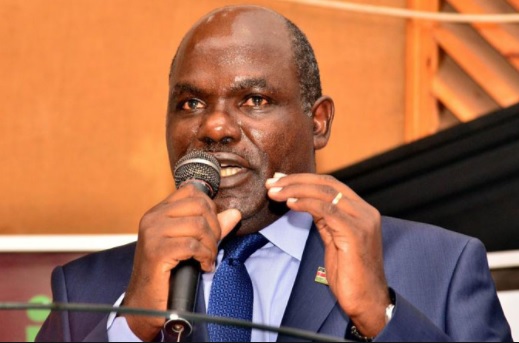Kenya elections 2022 is here with us will lead to the election of President, 47 governors, 47 senators, 47 women reps, 290 Members of Parliament and 1,450 Members of County Assembly. There are a total of 16,100 candidates for the various elective positions.
In the Kenya elections 2022, there will be four presidential candidates on the ballot. One will emerge a winner. Initially 17 Kenyans expressed their intention to replace President Uhuru Kenyatta at the State House. However, only 4 were cleared. This is the smallest number of presidential candidates since Kenya adopted multi-party democracy.
President Uhuru Kenyatta has served his two terms in accordance with the law and cannot run again for the seat.
William Ruto, 55, has served as a Member of Parliament, Minister and currently Deputy President. He threw his hat into the ring in a bid to replace his boss in the Jubilee Party. He is promising a better life for the “hustlers” across Kenya.
Raila Odinga, 77, is a front runner in the Kenya elections 2022 race. He has been in politics for many years and has participated in four elections (1997, 2007, 2013 and 2017) where he was a presidential candidate. This is his fifth bid to become the 5th President of Kenya. He is flying the flag under Azimio la Umoja-One Kenya Coalition.
He previously served as an MP for Langata, cabinet minister and Prime Minister under the ‘nusu mkate government.’
The other presidential candidates in the Kenya elections 2022 are George Wajackoyah under Roots Party and David Mwaure under Agano Party.
There are 22.1 million registered voters in the Kenya elections 2022 out of which approximately 8.8 million are aged between 18 and 34. Youth. This is a drop since the 2017 general elections.
A total of 46,229 polling stations will be used for the Kenya elections 2022. All of them will be open from 6:00 am on Tuesday August, 9 and close at 5 pm the same day.
The winner of the presidency will need 50% +1 vote and at least a quarter of the votes in 24 of the 47 counties across Kenya.
The Independent Electoral and Boundaries Commission (IEBC) has an approved budget of Ksh. 40.9 billion to conduct the Kenya elections 2022.
The European Union (EU), African Union(AU) and the Commonwealth have so far sent their observers to monitor the elections in Kenya.
Indelible Ink
Voters’ identity will be confirmed using an electronic system that scans their finger print. Each voter will then receive six ballot papers of different colors for each of the six different positions.
Once you vote, an indelible ink will be applied on your finger to ensure you do not come back to vote again.
IEBC confirmed that they will allow the use of manual registers if the electronic one fails. Azimio la Umoja coalition argued that an excess of 1,100 polling stations do not have access to either 3G or 4G networks with IEBC stating that it will use satellite modems to make sure those stations are covered.
Security officers
The security of Kenya elections 2022 will be ensured through deployment of over 15,000 police officers. The polling day has been declared a public holiday to ensure every Kenyan has a chance to cast their votes.
Results
The Kenya elections 2022 results are to be announced by August 16 from the national tallying center in Nairobi. A section of political analysts have indicated that there will be a run-off for the first time in Kenya.
If that happens, the run-off must be held within 30 days. The winner will take office two weeks after final results are announced and no candidate files a challenge.
If the court annuls the results, a repeat election must be conducted within a period of two months. This happened in 2017 when Chief Justice David Maraga annulled Uhuru Kenyatta’s win. Kenyatta won the repeat elections after Raila Odinga boycotted the elections.
GOT a story? RING Kerosi Dotcom on EMAIL info@kerosi.com



One thought on “Kenya elections 2022 Key facts”
Comments are closed.